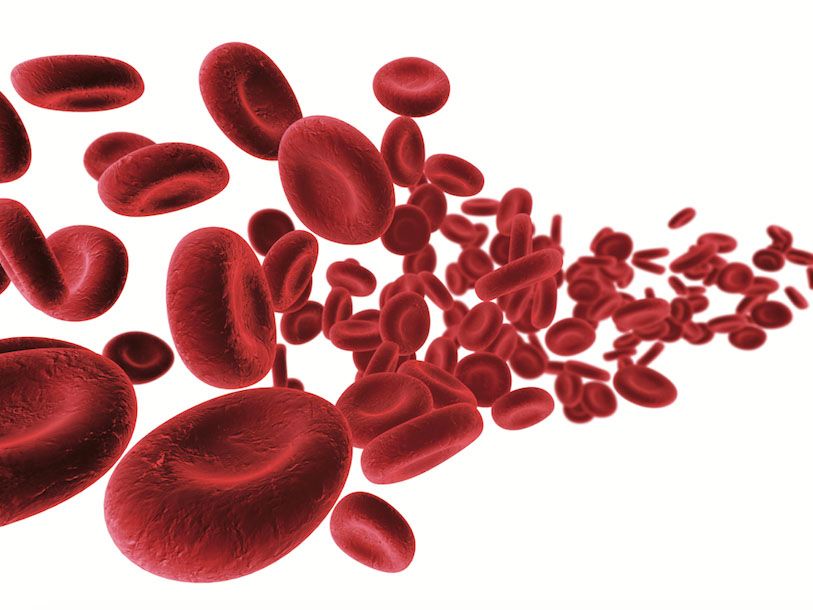Selinexor Granted Fast Track Designation by FDA for Penta-Refractory Multiple Myeloma
Selinexor was recently granted a Fast Track designation by the FDA for the treatment of patients with multiple myeloma who have received at least 3 prior lines of therapy, according to Karyopharm Therapeutics, the manufacturer of the oral SINE compound.

Selinexor (KPT-330) was recently granted a Fast Track designation by the FDA for the treatment of patients with multiple myeloma who have received at least 3 prior lines of therapy, according to Karyopharm Therapeutics, the manufacturer of the oral SINE (selective inhibitor of nuclear export) compound.
The Fast Track program is designed to accelerate the development, review, and approval of drugs that treat serious and life-threatening conditions.
“The designation of Fast Track for selinexor represents important recognition by the FDA of the potential of this anticancer agent to address the significant unmet need in the treatment of patients with penta-refractory myeloma that has continued to progress despite available therapies,” said Sharon Shacham, PhD, MBA, founder, president and chief scientific officer of Karyopharm, in a statement. “We are fully committed to working closely with the FDA as we continue development of this potential new, orally-administered treatment for patients who currently have no other treatment options of proven benefit.”
Selinexor links to and inhibits XPO1, a nuclear export protein, which leads to the accumulation of tumor suppressor proteins in the nucleus of the cell. This reinitiates and amplifies their tumor suppressor function, which investigators believe leads to the selective induction of apoptosis in cancer cells, while sparing normal cells.
The designation is based on data from the phase IIb STORM study, a single-arm, open-label, multicenter study of selinexor plus dexamethasone in patients with penta-refractory multiple myeloma. Patients enrolled on the trial must have received regimens comprised of an alkylating agent, a glucocorticoid, bortezomib (Velcade), carfilzomib (Kyprolis), lenalidomide (Revlimid), pomalidomide (Pomalyst), and daratumumab (Darzalex). Additionally, the patient must have been refractory to at least 1 proteasome inhibitor, 1 immunomodulatory agent, glucocorticoids, and to daratumumab, as well as the most recent therapy they received. A patient was considered refractory if they had ≤25% response to therapy, progression during therapy, or progression within 60 days after completion of therapy.
Patients were excluded from the study if they had active smoldering multiple myeloma, active plasma cell leukemia, documented systemic amyloid light chain amyloidosis, or active central nervous system multiple myeloma.
The study enrolled 122 patients who received 80 mg of oral selinexor twice weekly in combination with 20 mg of oral low-dose dexamethasone twice weekly. The primary endpoint of the study was overall response rate, with secondary endpoints of duration of response and clinical benefit rate.
Karyopharm plans to report top-line data from the study at the end of April 2018.
Part 1 of the study enrolled patients with both quad-refractory and penta-refractory multiple myeloma. Those 79 patients received 80 mg of oral selinexor plus 20 mg of oral dexamethasone twice weekly. Over each 4-week cycle, patients were dosed continuously (8 doses/cycle), or 3 weeks on and 1 week off (6 doses/cycle).
Of the 79 patients, 61% (n = 48) were quad-refractory and 39% (n = 31) were penta-refractory. Thirty-five percent of patients received the 6-dose regimen and 65% of patients received the 8-dose regimen.
In results reported by Karyopharm in 2016, the overall response rate was 20.5% (n = 16) among the 78 evaluable patients. In 48 patients with quad-refractory disease, the ORR was 20.8% (n = 10), and in 30 patients with penta-refractory disease, the ORR was 20% (n = 6). In the overall population, the clinical benefit rate (CBR) was 33%. The quad-refractory group had a CBR of 29% and the penta-refractory group had a CBR of 40%.
The study was then expanded to include only patients with penta-refractory multiple myeloma.
Reference:
Vogl DT, Dingli D, Cornell RF, et al. Selinexor and low dose dexamethasone (Sd) in patients with lenalidomide, pomalidomide, bortezomib, carfilzomib and anti-CD38 Ab refractory multiple myeloma (MM): STORM study. Presented at: 58th American Society of Hematology Annual Meeting; San Diego, CA; December 3-6, 2016. Abstract 491.
Gasparetto Explains Rationale for Quadruplet Front Line in Transplant-Ineligible Myeloma
February 22nd 2025In a Community Case Forum in partnership with the North Carolina Oncology Association, Cristina Gasparetto, MD, discussed the CEPHEUS, IMROZ, and BENEFIT trials of treatment for transplant-ineligible newly diagnosed multiple myeloma.
Read More